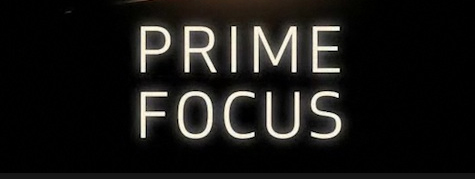
Animation Apprentice student Henry Fenwick just finished a three week work experience at Prime Focus Film in London's Soho. We asked him to share his experience and advice, so that other animation students would know what to expect when becoming a runner at a Soho studio.
AA: How did you get the job?
Henry: I got the job through my friend Rory Marchant who finished animation apprentice recently. Rory contacted me and said they are looking for runners urgently.
AA: How does the system work?
Henry: At the film building they have three runners working for a three month contract. When your three months is up they decide whether you have impressed them and shown ambition in a certain area of the film-making process. If you have, they promote you to a full time role. You can be promoted earlier if they are looking for people in your desired role. You do receive training in the area you want but, again, you get more training if they need the place to be filled quickly. Iffound that you should try and train and prepare yourself in your own time. In this particular job there was a lot of time sitting in the reception area doing nothing so there was a great opportunity to have my laptop and work on the job – which they didn't mind.
AA: What does the job involve?
Henry: The job of a runner is that , there where three floors and you clean up the floors three times a day, involving cleaning bowls and plates off peoples desks, loading the dishwasher, cleaning surfaces, checking teas and coffees are stocked and the bathrooms are clean and have loo paper etc. Also, you have to distribute post on your floor and take outgoing post to the post office. Also you must take internal mail to other Prime Focus buildings in Soho. There are also other random jobs that are requests from people and also drink orders and lunch orders. All these things are picked up quickly and your fellow runners show you the ropes. I got paid £54 a day which I thought was very reasonable and there where three shifts, 8-6, 8:30-6 and 10 till 8 and your shift changes every week.
AA: What did you learn?
Henry: What I learned is the avrious stages of post production, and how much work goes into making VFX ready for release. I also learnt a lot of how you should project yourself at work. I found that in the first week you may feel nervous and find it a bit daunting how many people there are, and that you don't know anyone, but after a week or two you start to settle in and feel that you can be yourself and be more confident.
AA: What advice would you offer to runners?
Henry: A word of advice is this: find a way of remembering peoples names, because I am terrible at it, but it is especially important for distributing post. Also it is important to be friendly to everyone and start conversations with people, talk about which department you want to be in and your background. Everyone I was really friendly and made time for me.
AA: Did you have to interview?
Henry: Yes, in your Interview I found that you need to show real passion for what you want to do. You also need to show signs of a sense of humor but don't come on to strong. Have an answer for 'what is the dream', which I need to work on. Don't just say that you can only do animation, but that you are open to work in other departments. This is because they may not be looking for animation jobs at that time but they could open up while you are running.
AA: Many thanks to Henry for sharing his experrience and advice!